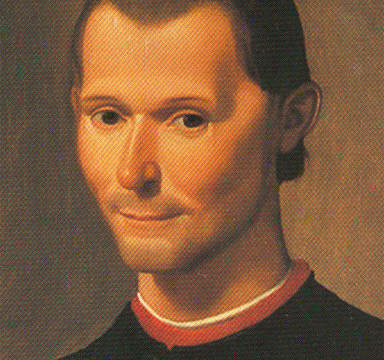Niccolò Machiavelli (1469-1527) was an Italian historian, philosopher, and political theorist. His most familiar work is the Prince, a guide to seizing and holding state power. Despite his reputation for ruthlessness, Machiavelli had a surprisingly libertarian streak.
1. “There never was a new prince who has disarmed his subjects; rather when he has found them disarmed he has always armed them, because, by arming them, those arms become yours, those men who were distrusted become faithful, and those who were faithful are kept so, and your subjects become your adherents”.
2. “For a war is just for those to whom it is necessary, and arms are sacred when there is no hope except in arms”.
3. “An act of humanity and benevolence will at all times have more influence over the minds of men than violence and ferocity…. and cities which no armies and no engines of war, nor any other efforts of human power, could conquer, have yielded to an act of humanity, benevolence, chastity, or generosity”.
4. “The institutions of a city never should place it in the power of a few to interrupt all the important business of the republic”.
5. “Of all the unhappy conditions to which princes or republics can be reduced, the most unhappy is that when they are unwilling to accept peace and incapable of sustaining war”.
6. “The actions of citizens should be watched, for often such as seem virtuous conceal the beginnings of tyranny”.
7. “It is [dangerous] for a republic or a prince to keep the minds of their subjects in a state of apprehension by pains and penalties constantly suspended over their heads. And certainly no more pernicious course could be pursued; for men who are kept in doubt and uncertainty as to their lives will resort to every kind of measure to secure themselves against danger, and will necessarily become more audacious and inclined to violent change”.
8. “The cities where the people are masters make the greatest progress in the least possible time, and much greater than such as have always been governed by princes”.
9. “It is impossible to establish a perpetual republic, because in a thousand unforeseen ways its ruin may be accomplished”.
10. “There are two methods of fighting, the one by the law, the other by force: the first method is that of men, the second of beasts; but as the first method is often insufficient, one must have recourse to the second”.

